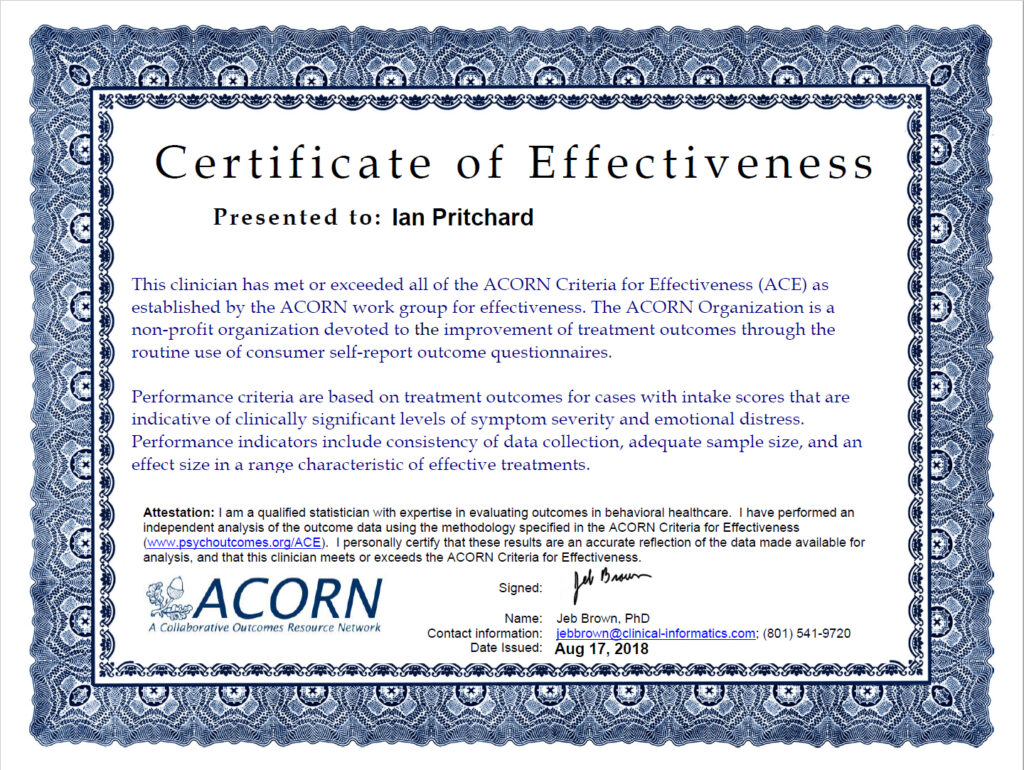Certification of Effectiveness
In recognition of clinical excellence, I have been awarded the ACE (ACORN Criteria for Effectiveness) Certification through A Collaborative Outcomes Research Network (ACORN). The ACE Certificate provides “real world” evidence that my therapy outcomes exceed the benchmarks for highly effective treatment. The evidence for my effectiveness has been independently verified through statistical analyses (Hierarchical Linear Modeling) by the Center for Clinical Informatics.
Severity Adjusted Effect Size (SAES) scores between 0.50 and 0.80 indicate a clinician is effective based on the ACE standards. Scores above 0.80 are considered highly effective. My achieved SAES score at the time of this writing is currently 1.12 and indicates that more than 70% of my patients not only improve, but improve significantly with regard to increased well-being and decreased general distress.
ACE Certificate
The idea behind the ACE Certificate comes from organic farming, where organic farmers realized that their product would have greater value in the market place if there was an external body that could “certify” their product as organic.
The ACE Workgroup is composed of a volunteer group of clinicians, researchers, and health plan administrators from Vanderbilt University, Northeastern University, Kaiser Permanente, ValueOptions, Milliman, and United Behavioral Health. The workgroup members are recognized experts in evaluating outcomes in behavioral healthcare. The workgroup’s aim is to establish the standards by which clinicians and treatment centers provide evidence of their services’ effectiveness. A series of peer-reviewed research journal articles on the ACE standards for effectiveness have been published by members of the ACE Workgroup.
Outcomes Informed Care
The ACE standards provide a benchmark for effectiveness based on the ACE Treatment Outcomes Evaluation Method, which is an example of Outcomes Informed Care (OIC). Outcomes Informed Care is known by a variety of terms, such a routine outcomes measurement, feedback informed treatment (FIT) and outcomes management. In OIC, treatment outcomes are measured on all patients receiving treatment through the frequent administration of patient self-report questionnaires during the course of treatment. My patients will recognize this acronym from the session rating scales completed after most psychotherapy sessions over the last year. Examples of other organizations using the ACE standards for OIC include Kaiser Permanente, Humana Behavioral Health, Beacon Health Options, Contextual Psychology Institute, Multnomah County, etc.

